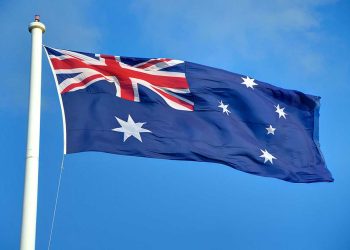A year after energy prices spiked in response to Russia’s invasion of Ukraine, oil and gas company Shell has recorded its highest yearly profit ever.
In 2022, profits reached $39.9bn (£32.2bn), which is twice as much as last year and the most in its 115-year history. Since oil and gas prices went up after the invasion of Ukraine, energy firms have made more money than ever before.
It has put a lot of pressure on businesses to pay more tax at a time when families are struggling to pay their bills.
Opposition parties said Shell’s profits were “outrageous” and that the government was “letting energy firms off the hook.”
They also asked that the planned increase to the cap on energy prices in April be canceled.
After the Covid lockdowns ended, energy prices started to go up, but they went up quickly in March of last year after events in Ukraine made people worried about supplies.
After the invasion, the price of Brent crude oil went up to almost $128 per barrel. Since then, it has gone down to about $83. Gas prices also went up, but they have since gone down.
It has made energy companies rich, but it has also caused energy bills for homes and businesses to go up.
Last year, the UK government put a tax on firms’ “extraordinary” profits called the Energy Profits Levy. This was done to help pay for its plan to lower gas and electricity bills.
Even though it made the change, Shell said it didn’t expect to pay any UK taxes this year because it can subtract decommissioning costs and investments in UK projects from any UK profits.
But on Thursday, it said it would have to pay £134 million in UK windfall tax in 2022 and more than $500 million in 2023.
This may not seem like much compared to its profits, but about 5% of Shell’s income comes from the UK. The rest of its income is made and taxed in other places.
Critics, on the other hand, say that Shell is based in the UK and has been giving more money to its shareholders than it has been putting into renewable investments.
Rishi Sunak and Jeremy Hunt are now under more pressure to get more money from oil and gas profits.
A representative from Downing Street said they “absolutely” understand the anger over the “extraordinary” profits, but there are no plans to raise the windfall tax.
When reporters asked about possible changes, the prime minister’s spokesman said, “That’s for the chancellor to answer.”
The official said that the government is “ready to take action” if falling wholesale energy costs don’t lead to lower prices at the pump. The official didn’t say what those actions would be, though.
The government is putting limits on gas and electricity bills right now, so a typical household that uses an average amount of energy will pay £2,500 per year.
Still, that’s more than twice what it was before Russia invaded, and in April, the limit will go up to £3,000.
The government’s windfall tax only applies to money made from oil and gas extraction in the UK. The rate used to be 25%, but it has since been raised to 35%.
Oil and gas companies also pay a 30% corporation tax and a 10% rate on their profits. With the new tax on windfalls, their total tax rate is now 75%.
But companies can lower the amount of tax they pay by taking into account losses or spending on things like taking down oil platforms in the North Sea. It has meant that energy companies like BP and Shell have paid little or no tax in the UK in recent years.
Effect of the War on Shell’s share
The amount of money Shell made in a year was a lot more than what it made in 2008. The company also said that it had given its shareholders $6.3 billion in the last three months of 2022 and planned to buy back another $4 billion worth of shares.
Wael Sawan, the CEO of Shell, said that these are “extremely hard times” because inflation is going crazy all over the world, but that Shell was doing its part by investing in renewable technologies.
Its CFO, Sinead Gorman, also said that Shell had paid $13 billion in taxes around the world in 2022. It was also responsible for 11% of shipments of liquefied natural gas into the EU, which helped ease the pressure on supplies caused by sanctions against Russia.
Ed Miliband, who is the shadow climate change secretary for Labour, said: “The British people will have to pay 40% more for energy in April, but the government isn’t going to put a proper windfall tax in place. Instead, they are letting fossil fuel companies off the hook because they are making a lot of money.
Related News
Ericsson foresees drop in profit margins at its core business in half-year 2023
Market value of listed cement Companies rose to N1.109 trillion In 2022
10 Highest Performing Stocks In Nigeria For 2022
European Union (EU) Delegation Seek To Replace Gas from Russia with Nigerian Gas
“Labour would stop the energy price cap from going up in April because it is only fair that companies making unexpected windfall profits from war money pay their fair share.”
Ed Davey, leader of the Liberal Democrats, said: “Putin’s illegal invasion of Ukraine shouldn’t let any company make such huge profits.
“They need to put the right taxes on oil and gas companies and at least make sure that energy bills don’t go up again in April.”
Paul Nowak, the head of the TUC, asked ministers to impose a higher tax on windfalls and said, “The time for excuses is over.”
He went on: “Instead of holding down the pay of paramedics, teachers, firefighters, and millions of other hard-pressed public servants, ministers should make big oil and gas pay their fair share.”













